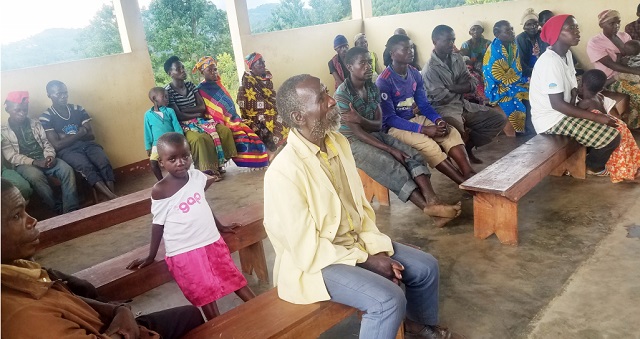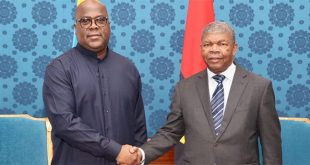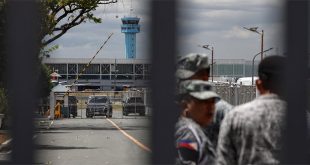
Marginalisation of the minority tribe keeps relief away
Kampala, Uganda | RONALD MUSOKE | Sylvia Kokunda, a young member from the Batwa minority community in southwestern Uganda has watched with frustration the recent debate on which groups of people in Uganda deserve to get the government cash relief during the ongoing lockdown of the country due to the COVID-19 crisis.
President Yoweri Museveni on June 18 ordered a second lockdown of the country for at least 42 days to stem the rampaging Coronavirus pandemic. Museveni said the government would through the Office of the Prime Minister give cash relief of about Shs 100,000 to help the most vulnerable people across the country survive during the lockdown.
Betty Amongi, the Minister of Gender, Labour and Social Development came out with a list of the groups of people the government deemed vulnerable who would therefore qualify for cash bailout. These included; bus/taxi drivers and conductors, baggage carriers, cart pushers, taxi touts and traffic guides.
Others on the list included; barmen, DJs, barmaids, waiters and bouncers, gym and restaurant workers, food vendors, artists such as musicians, comedians and producers, music promoters; boda boda riders, special hire taxi and Uber drivers, salon and massage parlour workers, teachers and support staff in private schools as well as teachers in government schools not on the government payroll.
Kokunda has been frustrated to see that the Batwa have been sidestepped in yet another government programme that she feels they deserve to be a part of given their vulnerability. She says she has been watching television and listening to the debate but to her dismay, she has not heard anybody talk about the Batwa.
“They have left us out again even if we have been one of the most affected people by the Coronavirus,” she told The Independent on July 6, “In Uganda, we are the forgotten people; no one talks for us and no one talks about us. The government rarely considers us in any of their programmes.”
Kokunda says before COVID-19 struck Uganda in March, last year, tourism helped the Batwa to get by.
“Groups within our community would entertain tourists at a fee; we would also sell our handicrafts to them. But all this suddenly stopped when the pandemic entered Uganda and travel bans were imposed by the government,” she told The Independent on July 6.
She says she has not come across any member in her community who benefitted from the Emyooga programme; a poverty alleviation programme that was started five years ago to help Ugandans with seed money for small income generating enterprises like salons.
Kokunda says the social injustice starts from the village to the local government up to the national government.
“Most of our school-going girls are getting pregnant at a faster rate during the current lockdown. Most of these girls will never go back to school.” She says this will only worsen an already precarious situation for the Batwa.
“For a Mutwa to get an education, we have to be helped by churches and NGOs. It is through the help of civil society and well-wishers that we manage to attain education, health services, housing and land. There is hardly any hand from the central government.”
Kokunda told The Independent that what hurts her community most is that when it is time for electing leaders, the Batwa suddenly become valuable but when the leaders are chosen, then the Batwa become useless.
“They come to us for votes but if a Mutwa wishes to stand for elective politics they don’t vote that person saying we are too few.” Kokunda told The Independent that she is convinced there is “total discrimination against the Batwa.”
Living on the margins
Since the 1930s when the British colonial government declared Uganda’s forests conservation “reserves,” the Batwa have lived on the margins of Ugandan society. The community which had lived in forests for centuries suddenly found itself landless.
Although some of them resisted the evictions and continued living inside the forest reserves, this only went on until the 1990s when the Batwa were finally evicted from the southwestern tropical rain forests of Mgahinga, Bwindi and Echuya to create national parks.
“When the Batwa were evicted from the forests of Bwindi, Mgahinga, Echuya and Semliki forests 30 years ago, life became extremely difficult. We were never compensated for losing our ancestral homes and we suddenly found ourselves squatters on people’s land.”
Today, the Batwa are mostly landless labourers. They often live as squatters on remote, hilly and isolated locations. Kokunda says the Batwa are poorly educated, their community has one of the highest incidence of gender-based violence, alcoholism, poor access to health services with high HIV rates and premature deaths.
She adds that the Batwa hardly have political representation and, because of the discrimination, they rarely intermarry with the more dominant Bakiga and Bafumbira communities. All these challenges, have led to a situation of hopelessness, anguish and oppression among the Batwa, she says.
Kokunda who heads a community-based organisation known as the Action for Batwa Empowerment Group (ABEG) told The Independent that currently, the Batwa are about 6,800 and are scattered in the districts of Kanungu, Kisoro, Kabale, Rubanda and Bundibugyo in southwestern Uganda.
 The Independent Uganda: You get the Truth we Pay the Price
The Independent Uganda: You get the Truth we Pay the Price


